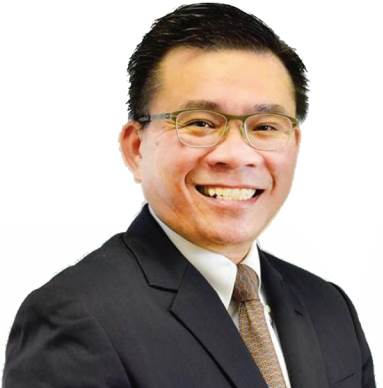Food security and the storm ahead: Using plant science to grow more with less
 |
| DR. Siang Hee Tan Executive director, CropLife Asia |
At the same time, Asia is also home to 85 per cent of the world’s 525 million smallholder farmers, and roughly 14 million of this number call Viet Nam home. Smallholder farmers in Viet Nam and other countries across ASEAN are being increasingly looked on as key parts of the solution to produce more food for a growing population. With less access to arable land and water as well as more pests and diseases to combat, the job of regional smallholder farmers is daunting to say the least.
According to data recorded by the World Bank, Viet Nam’s agricultural sector comprises almost 50 per cent of the total labour force, but the sector contributes only 17 per cent of the country’s GDP. Viet Nam is not alone; this is a phenomenon that plagues much of the region. In fact, among the top eight agro-producing countries of ASEAN, agriculture accounts for around 20 per cent of the national GDP on average, while the labour force working within the industry stands at a staggering 46 per cent.
Unfortunately, the difference between these two numbers tells a story of missed opportunity for the region’s larger agricultural sector, and poses an unnecessary threat for food security in Viet Nam and ASEAN.
Technology has a role to play
Sustainable food security in ASEAN is not a preference or a hope, it’s a necessity and a shared responsibility. With the world changing around it, the demands placed on agriculture in the ASEAN region are changing as well. As we ask our farmers to feed more people, and have less impact on the environment and use fewer resources, equipping them with the latest tools and technology is essential. It should begin with enabling and empowering our smallholder farmers.
The innovations of the plant science industry are game-changing for smallholder farmers in the region and in Viet Nam. Bringing numerous innovations of plant biotechnology and crop protection to farmers is a key component of the solutions needed to address the looming food production challenges.
Viet Nam’s smallholder farmers rely on crop protection products to prevent pests, disease, and weeds from damaging their crops and limiting their harvests. In total, it is estimated that 50 per cent of the world’s food production would be lost to pests, diseases, and weeds if it were not for crop protection products. The protection advanced pesticides provide is not limited to the field either. They also help prolong the viable life of the plant and prevent post-harvest losses of crops while in storage.
Meanwhile, biotech crops are helping to slow the advance of climate change by reducing carbon emissions. For example, it is estimated that biotech crop plantings in 2015 reduced carbon emissions by 26.7 billion kilogrammes, which is equivalent to taking 11.9 million cars off the road for one year.
Additionally, 90 per cent of the roughly 18 million risk-averse farmers benefiting from biotech crops are small resource farmers. In 2015, the net farm-level economic benefit was $15.5 billion, equal to an average increase in income of $90 per hectare.
As stated during the APEC High-Level Policy Dialogue on Agricultural Biotechnology (HLPDAB) meeting this August in the Mekong Delta city of Can Tho, agricultural biotechnologies can be used as tools to enhance agricultural productivity, raise farm income, protect the environment, strengthen food security, and mitigate the impact of climate change.
A further benefit of plant science currently being realised is the water conservation it promotes by helping reduce the need for tillage. No-tillage farm techniques, where the soil remains largely or completely undisturbed, aid water conservation by helping build organic matter and ultimately improving the soil’s moisture retention.
As an industry association, CropLife and our member companies are committed to promote sustainable agriculture through high-quality innovations in crop protection, plant biotechnology, and seed production. Farming is one of the greatest uses of the earth’s natural resources, which is why our industry continues to provide the tools that will help farmers grow more with less, and learn environmentally-friendly best practices.
Dr. Siang Hee Tan is executive director of CropLife Asia, the Asian arm of CropLife’s international trade association with a presence in 91 countries. At CropLife Asia, he is responsible for directing programmes on regulations, crop protection, seeds, intellectual property, and biotechnology, as well as communications and outreach programmes in 15 Asian countries. Dr. Tan holds a BSc in Plant Pathology from the University Pertanian Malaysia, an MSc in Genetic Engineering from University Putra Malaysia and a PhD in Molecular Biology (Plant Viruses) from Okayama University in Japan.
What the stars mean:
★ Poor ★ ★ Promising ★★★ Good ★★★★ Very good ★★★★★ Exceptional
Latest News
More News
- The generics industry: unlocking new growth drivers (February 04, 2026 | 17:39)
- Vietnam ready to increase purchases of US goods (February 04, 2026 | 15:55)
- Steel industry faces challenges in 2026 (February 03, 2026 | 17:20)
- State corporations poised to drive 2026 growth (February 03, 2026 | 13:58)
- Why high-tech talent will define Vietnam’s growth (February 02, 2026 | 10:47)
- FMCG resilience amid varying storms (February 02, 2026 | 10:00)
- Customs reforms strengthen business confidence, support trade growth (February 01, 2026 | 08:20)
- Vietnam and US to launch sixth trade negotiation round (January 30, 2026 | 15:19)
- Digital publishing emerges as key growth driver in Vietnam (January 30, 2026 | 10:59)
- EVN signs key contract for Tri An hydropower expansion (January 30, 2026 | 10:57)
















 Mobile Version
Mobile Version